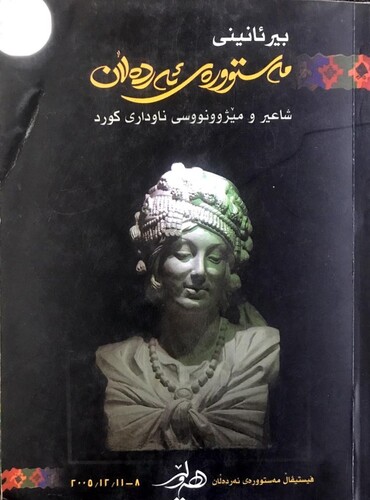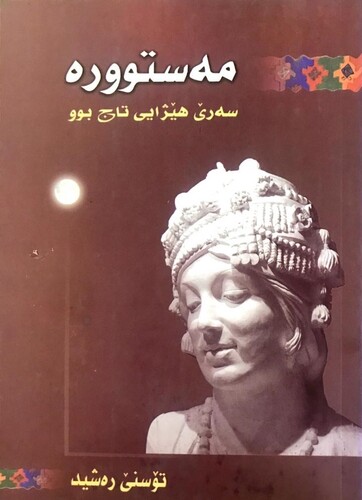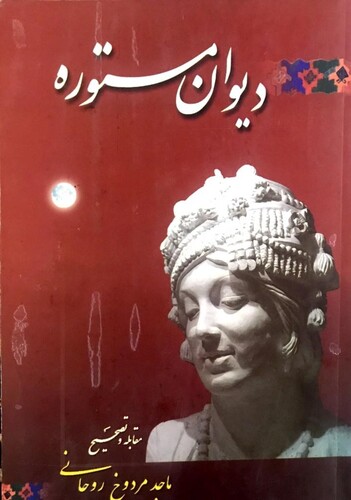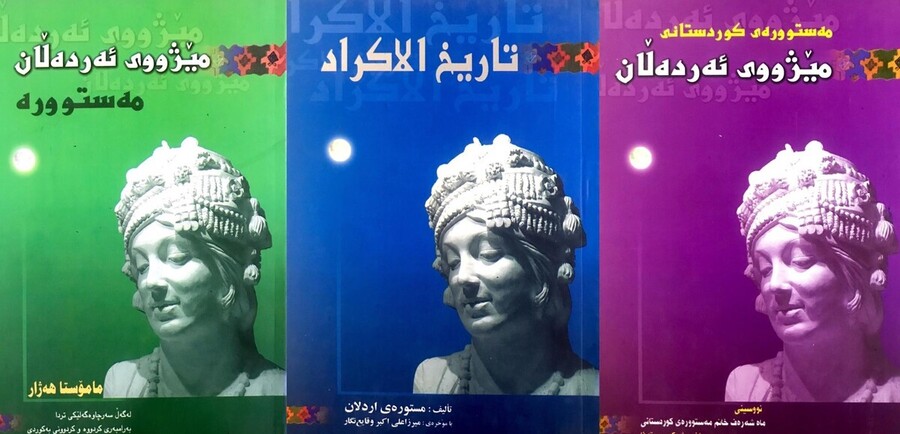"Mahsharaf Khanim" Qadiri, daughter of Abul Hassan Bag, also known as "Mastura Ardalan" or "Mastura Kurdistani", was a writer, poet, and the first historian woman in the world. She was born in 1220 AH (1805 AD) in Sina (Sanandaj) in East Kurdistan. She was born into a family of scholars and cultural leaders, literacy and knowledge in that family have always been a symbol of glory and pride. So, she was sent to school to learn the Quran, Bustan, Golestan, the poem, Sharia, philosophy, and other sciences of that time and mastered them.

During the reign of Khosrow Khan Ardalan, known as Khosrow Khan Nakam, the relationship between the ruling Ardalan family of Sina and Ardalan province with the Qadiri family broke down, but they later repaired the relationship, and to guarantee the relationship, Khosrow Khan married Mahsharaf Khanim. The incident took place in 1828-1829 when Mahsharaf was 22-23 years old.

According to "Ali Akbar Khan" Munshi (secretor), Mastura did not agree to the marriage, but Mastura's father, Abul Hassan, and grandfather, who was Mustawfi (accountant) and responsible for the treasury of Ardalan, were arrested and imprisoned by Khosrow Khan and, they were fined 30000 Tomans of that time. Then, he releases them on the condition that to marry Mastura. Therefore, the marriage of Mastura the Great and the Khosrow Khan Nakam was based on a deal between two families to eliminate conflict. Moreover, Mastura is not Khosrow Khan's first wife, but one of Khosrow Khan's wives. In addition, Khosrow Khan was the son-in-law of Fath Ali Shah Qajar, and Fath Ali Shah's twenty-first daughter, Hosni Jahan Khanim, was his wife before Mastura. She was very powerful in her husband's authority. This woman had three sons and three daughters (for instance, Khosrow Khan's successor, Razaquli Khan, is the son of Hosni Jahan Khanim, who is mistakenly considered the son of Mastura in some sources).

Khosrow Khan had many other women in the harem, so the life of emotional Mastura was difficult with the presence of women who were competitors. Mastura often complains about her rivals in her poems.
According to Mirza Ali Akbar Khan Munshi, Mastura's poems in her Divan were 20000 verses, although only 2000 remained. Her husband Khosrow Khan also wrote poetry and encouraged her to write. Mastura was in contact with Yaghma Jondoghi, a famous Persian poet at her time, and exchanged poetry.

Mastura's marriage to Khosrow Khan did not last long and he died in 1250 AH (1834). The death of Khosrow Khan and Mastura's young brother, Abul Mohammad, greatly impacted Mastura's soul. After that, she became depressed and started writing the religious book "Aghayed" (Beleiefs), which among women till that time no woman had written any text on Sharia.

Mastura remained in the Ardalan dynasty for many years and wrote; according to Mirza Abdullah Raunaq, Mastura's father's uncle, after the Qajars took power from the Ardalans (1846), some of the Ardalans and Mastura left Sina and moved to the Baban land, and later in Suleimani, she died in 42. Her body was taken to Najaf for burial. Some sources say she was buried in Zargat village in the Hawraman region of South Kurdistan.

Mastura's fame is mainly due to a historical book called "History of the Ardalan" which elevated her rank as the first historian woman in the world. In addition, the book itself is a good and reliable source of Kurdish history, especially the history of one of the oldest ruling families in Kurdistan, the Ardalan family.
Mastura's works were in various fields of science and included:
1- History of the Ardalan, which is the history of the rule of the Ardalans in Kurdistan, especially the Ardalan region, and their relations with rulers such as the Safavids, Qajar, Ottomans, etc.
2- Divani Mastura, a collection of Mastura's poems, consists of several parts such as ghazal, ghasida, masnavi, qata, and Chwarina. In recent years, Iranian school textbooks have included Mastura Kurdistani's Persian poems and life.
3. Shareiat is a book on Sunni jurisprudence in which Mastura explained Shari'ah issues as a mujtahid.
Many books and articles have been written about Mastura, the most important of which is a book by the Armenian Kurdish writer Tosne Rashid entitled "Mastura Was the Head of the Crown" and the book "Remembering Mastura Ardalan" which is a collection of writings on Mastura. It is worth mentioning that the history of Mastura Ardalan has been translated into Kurdish by Mamosta Hazhar Mukryani.









